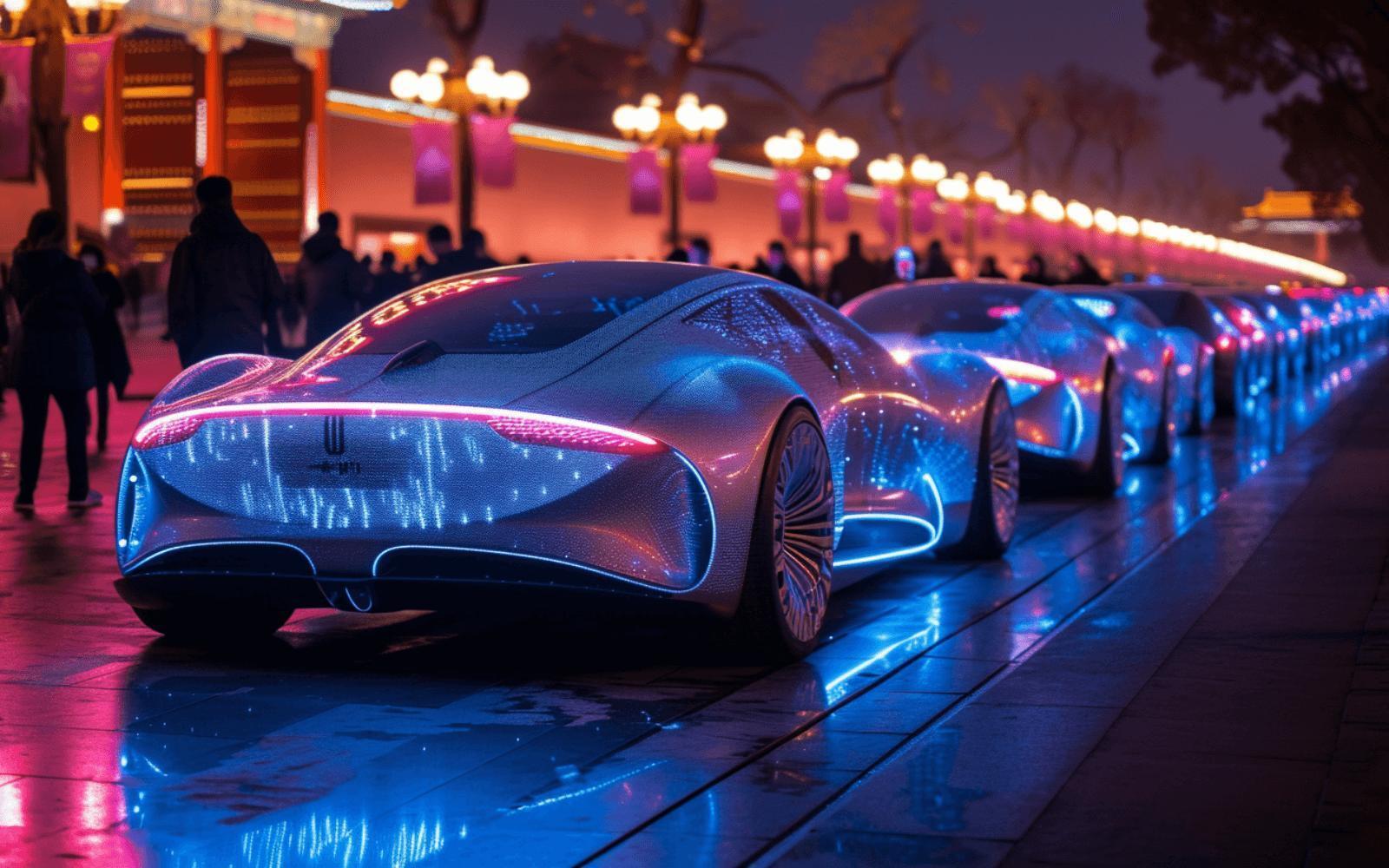Challenges of 2024 EU EV market – Industry News 2403

Preface
Challenges of 2024 EU EV market
It is projected that the growth rate of EV sales in Europe will slow down to 5% by 2024, Challenges of 2024 EU EV market are emerging.

Market situation
According to data from the European Automobile Manufacturers Association (ACEA), electric car sales in Europe experienced a monthly decline of 25% in December 2023, marking the first decrease since April 2020. Among them, Germany’s electric car sales nearly halved, experiencing a larger decline compared to markets such as the United Kingdom, Spain, and France.
The decline in sales is attributed to the sudden adjustment of Germany’s electric vehicle subsidy policy and weakened consumer demand. Additionally, factors such as increasing borrowing costs, economic downturn in certain regions, and inadequate infrastructure for electric vehicles have also contributed to this situation. Several institutions predict that by 2024, the European automotive industry will face challenges including slowing sales growth and price wars.
According to Bloomberg industry research, the growth rate of European car sales is predicted to slow down to 5% by 2024 (compared to a growth rate of 14% in 2023). Meanwhile, research institutions such as HSBC Global Research have revised their targets for large-scale electric vehicle sales by 2030. Analyst Daniel Roeska from Bernstein stated, ‘Demand has already started to decline, and automotive manufacturers and dealerships will soon face an overall impact of weak demand.
Response of enterprises
In order to address weak demand and boost enthusiasm for car purchases, automakers are introducing more electric vehicle products into the market. According to data from French automotive consulting firm Inovev, there will be at least 15 new electric car models launched in Europe by 2024.
The decrease in purchasing intention and increase in vehicle options have led automakers to proactively lower prices to attract consumers and compete for market share.
HSBC Global Research states that electric cars in Europe are facing pricing pressure. Currently, brands such as Tesla, Volkswagen, Renault, and BYD that export to Europe are planning significant price reductions to stimulate demand.
The voluntary reduction of prices by many car manufacturers may lead to a ‘price war’ in the European electric vehicle market. Investment bank Morgan Stanley predicts that Europe will experience a vicious cycle/price war similar to what has already occurred in China.
Stellantis Group
According to Reuters, in the face of pressure from Chinese automotive competitors and a slowdown in the growth of electric vehicle sales, Stellantis Group and Renault are striving to reduce the costs of electric vehicles in order to achieve similar pricing and profit margins as traditional fuel-powered cars. This has also compelled some European car manufacturers to develop low-cost electric vehicles.
Recently, during a conference call, Carlos Tavares, CEO of Stellantis Group, stated that disregarding cost reduction in electric vehicles could lead to “rivers of blood” within the industry.
If I were a short-termist, I would choose to increase electric vehicle sales quickly by reducing profit margins,” stated Carlos Tavares. Earlier, Stellantis Group announced its performance for 2023 and warned that 2024 would be a turbulent year.
Currently, European car manufacturers are facing a delicate balancing act: in order to lower the price of electric vehicles and meet investors’ profit expectations, they must first reduce their costs. In October last year, Citroën, a brand under Stellantis Group, launched a new pure electric SUVe-C3 with a starting price of 23,300 euros to compete with Chinese car manufacturers.
Our task is to reduce costs as soon as possible in order to balance the additional expenses brought by electrification transformation and sell electric vehicles at the same price as fuel-powered cars,” Carlos Tavares added. He further mentioned that the profit margins between electric vehicles and fuel-powered cars are converging, and we hope to expedite this process.
CLEPA
As automotive manufacturers forge ahead in the process of electrification, automotive suppliers are also facing immense pressure. Recently, the European Association of Automotive Suppliers (CLEPA) revealed that more than half of the car parts suppliers have a profitability level below the required threshold of 5% for sustainable business development.
According to CLEPA Secretary General Benjamin Krieger, suppliers are facing a precarious situation due to a combination of factors including uncertain future technologies, the ongoing impact of the pandemic, inflation, and rising energy costs. These challenges require significant investments, which result in cost increases for automotive manufacturers and necessitate adaptation to new rules and regulations.
Renault Group
Renault CEO Luca de Meo stated, ‘Efforts are being made to reduce the cost of electric vehicles so that they can be priced competitively with fuel-powered models.’ Cost reduction is easier for smaller electric cars as it allows for a reduction in battery pack size, which typically accounts for around 40% of the total cost of an electric vehicle.
“I need to emphasize that we must reduce costs before lowering prices in order to achieve our goal of maintaining profit margins on new car sales,” said Thierry Pieton, Chief Financial Officer of Renault.
Mass Layoffs
At the beginning of 2024, the European auto parts supplier industry witnessed a wave of tens of thousands of layoffs, and traditional major parts suppliers ZF, Bosch, and Continental are competing to cut costs in response to the transformation. It is predicted that the number of job cuts in the European auto parts industry could reach as high as 30,000 in the next few years.
Reports indicate that ZF Friedrichshafen plans to cut 12,000 jobs in Germany by 2030, which is nearly a quarter of its workforce in the country. The company is currently considering freezing recruitment in Germany. Bosch, the world’s largest automotive supplier, also plans to lay off 1,200 employees. The company cites rising energy and raw material costs as well as sluggish economic growth and high inflation as reasons for implementing cost-saving measures. Continental AG intends to reduce its global workforce by 5,500 people and streamline its automotive division from six business areas to five.
And this could be just the beginning. According to German automotive industry experts, automotive suppliers are expected to face more job cuts in the future due to their lower profit margins compared to car manufacturers.
Furthermore, the 2024 European Parliament elections will not only result in a delay of existing proposals concerning automobiles, such as synthetic fuels and vehicle data protection, but they may also have an impact on the direction of certain policies. The fluctuating changes in electric vehicle policies are bound to affect the European electric car market.


0 Comments